Art and Mental Health Interview with Street Photographer Neil Milton
How imposter syndrome, the pandemic and going to therapy relate to the creativity in music and street photography.
This is how art and health intersect for one artist. If you are interested in understanding this relationship in your own life: Order a Creative Health Assessment or Book a 1:1 Coaching Call.
Quick professional recap from Neil:
Long story short, for a precis, I ended my teenage years in a band, and started a record label. Ran it until 2006 when it was placed on hiatus and I picked up a camera. Did that for a few years (for some time as my job, too) then moved to Poland. In Poland, I got back into music and relaunched the record label. Spent almost a decade doing that. The pandemic messed with music, and with my mental health, so I finally laid the label to rest in 2020, and picked up a camera again in 2021, and here I am, with the intention of doing that as my 'thing' until retirement.
What would you say are your biggest mental health challenges?
My creative life has been conducted by a maestro flourishing impostor syndrome, high-functioning anxiety, and a somewhat unrelated selective eating disorder. Dissonance may come and go, but any one of these little melodies can make a reprise at the most inopportune times.
I grew up in a household with a father suffering from episodes of anxiety and a mother who was, at the time, undiagnosed with Bipolar Disorder. Though a loving home, this made for something of a turbulent childhood. I didn't know any better. Surely all families had this experience, I thought. Nevertheless, the small traumas I faced did leave their mark and I have inherited Bipolar behaviours which often need to be kept in check.
At times I feel focused and indefatigable with complete belief in my work. At others, Lilliputian deficiencies in what I make will give voice to the hushed murmurs of my impostor syndrome accusing me of pretending, warning me I will be found wanting. At these times, the desire to procrastinate is intense. It takes determination to pick up the camera, nevertheless, and get out on the street.
You eventually went to therapy and found that helpful … What inspired you to go to do so?
Therapy was something I was supportive of for others but hesitant (bordering on hostile) when suggested for myself. I was a well-rounded, stable, self-reliant man. It was quite the emotional rug-pull, showing me just how far that was from the truth.
After an apparent, endless stream of hook-ups and failures, I met my partner at the beginning of 2016. Years of romantic disappointment, a tendency towards narcissism, and, as my music career stalled, growing professional jealousy, all took their turn in my descent into an angry, spiteful, verbally-abusive partner. Months after the relationship ended, as we discussed reconciliation, therapy was something of a dealbreaker, and rightly so.
I struggled with Freudian psychotherapy as I fought against the thought that my upbringing had a part to play in the psychological tumult I found myself in. After a long 5 years, I now recognise and accept this. Over time I understood my anger had little to do with my partner or the relationship I almost destroyed, a loving, trusting relationship that I am very fortunate is still going strong, now, 6 years after our reconciliation.
Though I don't diminish the years of hard work I undertook to grow, change, and become a better partner, I do credit therapy for guiding me through it. I suspect the world would be a far more safe and comfortable place for women to live if more men considered some time in therapy.
I appreciate that. And I want to add from my own point of view that all genders benefit can benefit when anyone goes to therapy since we’re all in relationships of various kinds with many different people in the world. Therapy often helps each of us own our own stuff or “clean up our side of the street” so to speak so that we aren’t putting that on anyone else.
How did the pandemic impact/ alter/ magnify mental health challenges?
As the Covid-19 lockdowns began, I resolved to spend time confined to my flat writing new music for my band. Weeks turned to months and I read of others in music feeling the sting of the industry grinding to a halt. I found a selfish sense of relief. The pandemic had become my excuse. I didn't have to struggle to write songs or confront my creative self-doubt.
As a loquacious person and kinetic on stage, I am often considered an extrovert. The pandemic brushed away that crusty layer to uncover an introvert in hiding. My life made sense. I live a lot of it in my head, planning, sketching, and scheming. Working with others had become more difficult over time, and I recognised the ease with which I was now working on my own.
In the autumn of 2020, my partner suggested I take her old Zenit camera for a walk and so I took my first steps back toward photography again. On the street, surrounded by people, I could nevertheless work alone. Street photography allows me the isolation to work where I felt comfortable.
For a long time, I thought I was extroverted because I naturally perform well in front of people (not on a stage per se, just in life.) I think that’s often a trait of those of us with high-functioning anxiety. (And I’d like to just give the reminder that high functioning means that you can adapt to what society asks of you but not that you feel okay doing it!) For me, I realized I was more introverted when asked the question “does being with people energize you or drain you?” because ultimately it drains me.
Okay, let’s talk music for a minute. What role has music played in your personal growth journey? How has it helped you?
Music has been a red thread spooling with me throughout my life. I grew up in a house full of music with a record player on a constant spin. My love affair with guitar began in my early teens and by my early 20s, I played in a band on Scotland's indie and DIY scene. Around this time, I founded a record label, too many fireworks, that kept me busy for 20-odd years.
As a fan, I would obsess over bands that I loved. In joyful moments, music would give me a euphoric high. In times of heartbreak or sadness, it would console me and let me start again. Music is in my blood. Even when I first turned to photography, I began by making photos at music shows. My love for music has driven me creatively, my whole life.
This touches on a couple of key things I’m exploring in my research. First, that just “consuming” creativity (ie, listening to music) can be healing. Second, that when you combine your creative life with the way you make money, sometimes it gets really complicated as it relates to mental health.
Has music ever triggered or exacerbated any mental health challenges?
Despite my successes, I am a self-confessed indie-music underachiever. With the impostor syndrome pecking away at my confidence, I spent my time as a songwriter and performer expecting to be found out. Waiting to be unmasked as a charlatan.
Petty jealousies took their toll on my mental health. I would see peers have success and I would seethe. That the object of my ire had put in more effort, worked harder, or had more luck never crossed my mind. It was unjust and unfair. It was, in fact, an immature, bitter way to view the world.
These pressures fed my anxieties and, via a long and winding road, led me to therapy. When aggravated by the pandemic, it was clear I needed to make a change, and photography was lurking to tempt me back. So told by someone I trust and admire, I am a stronger photographer than a songwriter anyway. I've never been sure if that was a compliment. Nevertheless, for the first time in a decade, I feel relaxed and comfortable in my creative work. I have moments of impostor syndrome, but my renewed confidence keeps it at bay.
I think many of us find that different forms of art are best for us at different times. What do you think has most drawn you to the medium of street photography now?
There is a cachet in photographing music shows. I still enjoy pasting that photo pass to my jeans like a post-modern military honour and strutting past security into the photo pit. Nevertheless, I sought to push myself and, in photography, there are few more challenging ways of working than in street photography. Photographing life as it happens on the street is fast, dynamic, and not without risk. I've been confronted, assaulted, and detained, however, these moments are rare.
I was drawn to street photography not only by the intent to create humanist photography in the vein of Henri Cartier-Bresson and Robert Frank, but also by the wry humour found in the pictures of Elliott Erwitt, Richard Kalvar, and Garry Winogrand. There is an alternative, transgressive, curious character that surrounds street photography that appeals to me.
Oh, I love that description! As an aside, I was a music “journalist” in the early days of blogging and I never got tired of how fancy it felt to wear that press pass at shows. How does street photography, specifically, interact with mental health for you?
Interaction with others is rare. I choose instead to hunt for the shot on the street, unremarkable, invisible, and in plain sight. I find this more comfortable than, say, making street portraits where there is an abundance of interaction, or in studio photography where I may have to manage a small team. I do these things too, of course, but I prefer the solitude I find in the street while nevertheless surrounded by people.
In street photography, confrontation can occur and, though rare, someone may have a strong, even violent, reaction to being photographed. I have learned through experience the best approach is to walk away. Though difficult, it takes a certain fortitude to move past an angry confrontation and continue the day's photography without distraction.
More common, however, are the good-natured reactions. These days, with privacy such a concern, it is understandable why people may want to know why I made a photograph, however, I have found as long as there is sincerity in my reply, it leads to a more amiable conversation. My choice of camera, a 1957 Leica M3, is often a more pleasant conversation starter.
I never really thought about the way that directly making another human your subject could lead to varied responses. That’s something I’ll have to explore more in the future with curiosity for how other street photographers experience that in relation to mental health.
I imagine it differs for people with different mental health states, depends on the type of photos they’re taking and where they’re doing so, and also probably varies for women, people of color, etc. Food for thought …
Getting back to your work, though: does your mental health ever impact your ability to go out and do that creative work?
Impostor syndrome does, at least, push me to look critically at the work being made. Master street photographer Alex Webb often states that street photography is "99% about failure". In my early years, I used to feel disheartened to return from a day's photography with nothing of any interest. Later, I discovered that even the best street photographers miss more than they score.
Being hypercritical of myself, I became adept at filtering out photographs that weren't good enough, while finding and treasuring those that were. Still, returning after a day in town with little to show for it can be discouraging and motivation for the next day is found wanting. It is vital to shake it off, stick a roll of film in the camera, and step out the door.
I remind myself that if it was easy, everyone would be doing it and while sometimes it feels like so many are, it is the desire to stand above so much of the lazier work out there on hashtag-streetphotography that drives me.
Does teaching and studying photography change its relationship to mental health for you at all?
I had no relevant formal education, so I was lucky to find my way to teaching photography by the back door, so to speak. Even so, without a degree, there is no obvious path to my goal of teaching in further education or in academia. I have often regretted not achieving a degree earlier in life, so I chose to go back to school and study for a BA in photography.
The practical upshot of this is that I have added several photographic strings to my bow outside of my speciality of street photography. Psychologically, I have found that the impostor syndrome inflamed by being a self-taught photographer has calmed. The positive reinforcement of the grading and feedback quietens the whispering devil on my shoulder.
That I brim with confidence when teaching others, yet I struggle to believe in myself having taught myself. The irony is not lost on me.
Congrats on going back to school. As you know, I just started back for my second masters degree. But I was a high school dropout and later a law school dropout, so I can relate to the way that getting a more formal education can help quiet that imposter syndrome. There are definitely other paths and ways to quiet it but that is one route.
Interestingly, though, it’s also why I didn’t pursue education in writing when I was younger. I was always “good” at school but looking back I absolutely feared that if I went into a writing program I would be found out as not good at all. Ah, the things our brains come up with …
What have been the similarities and differences between photography and music for you as relates to your wellness?
My obsessive nature has not changed in the move from ears to eyes. When I broke from music, I picked up a camera and the guitars remained in their cases. When I returned to songwriting, the camera gathered dust on a shelf. I throw myself 100% at something, there are no half-measures. I recognised, then, that when I returned to photography this time, I was waving a solemn goodbye to my creative life in music, settling into the role of a passionate listener. Since then, I spend every creative moment of my life thinking about apertures, shutter speeds, gestures, expressions, and remembering to remove the bloody lens cap.
As a musician, songwriter, or as a performer, I was part of a larger whole. Cooperation was crucial. As I have grown older and learned to accept rather than fight my introverted nature, I realised how much energy was sapped from me by collaboration and creating with others. Would my partners like my ideas? Would they accept them? Would I have to fight for them? Would there be an impasse? Could we compromise? Would we resent it? All of these questions ate at me and I would procrastinate in my songwriting.
I don't want to give the impression I can't work with others, though. I often do, and it is fecund and fruitful. Working with portraiture, for instance, I most often face a client relationship rather than an artistic collaboration which is a different form of cooperation.
As a street photographer, though, no such considerations exist. It is me, my camera, and life outside my door, answerable to no one but my own edit. I have found that to be a great, creative freedom.
It sounds like you’ve really found what’s working best for you right now. I love that. What else do you do for self-care, mental wellness, etc?
I am not a gamer, however, I made a pandemic purchase of a PlayStation with the games Spider-Man, FIFA 20, and Hideo Kojima's Death Stranding. The latter is a remarkable journey that I often take when I need some time to myself, or to disconnect from my work.
In the game, your character is a porter in a world locked down, traversing a landscape, delivering packages and avoiding otherworldly entities called BTs. The gameplay is often meditative as you travel from origin to destination. It is a stunning, magnificent, and at times devastating treatise on death, grief, human connection, and hope. I can sincerely say it has become one of my favourite pieces of art. Period.
Recommended by Kathryn: Jane McGonigal’s work about the mental health benefits of video games.
Speaking of favorites: who are some other favourite artists, musicians, writers?
My path to my favourite photographers is one often tread, I think. I began in Waterstones not long after buying a camera. I picked up a Cartier-Bresson retrospective and fell in love. I often wonder what would have happened had I picked up an Ansel Adams book instead. Would I have forsaken the streets for the hills of Scotland? From there I found my way to the Magnum Photos agency and from Magnum to photographers such as Elliott Erwitt, Josef Koudelka, and one of my idols, Richard Kalvar. Stepping away from Magnum, Robert Frank, Andre Kertesz, and Garry Winogrand join Kalvar and Erwitt as solid favourites and major influences.
Though I adore so much music, from the Beatles to Baloji, the enduring love of my life has been the Scottish indie music scene. Bands such as Belle and Sebastian, The Delgados, Mogwai, Arab Strap, Idlewild, and Teenage Fanclub changed my life.
Having shared all of that, what is something we might be surprised to learn about you?
I am left-handed, left-footed, right-brained, and my dominant eye is my right. Barr's Irn Bru is my favourite drink, and Gregg's vegan sausage rolls are a revelation.
Don’t forget to subscribe to Neil on Substack, visit his website, and check out his work on Shoot It With Film.
This is how art and health intersect for one artist. If you are interested in understanding this relationship in your own life: Order a Creative Health Assessment or Book a 1:1 Coaching Call.



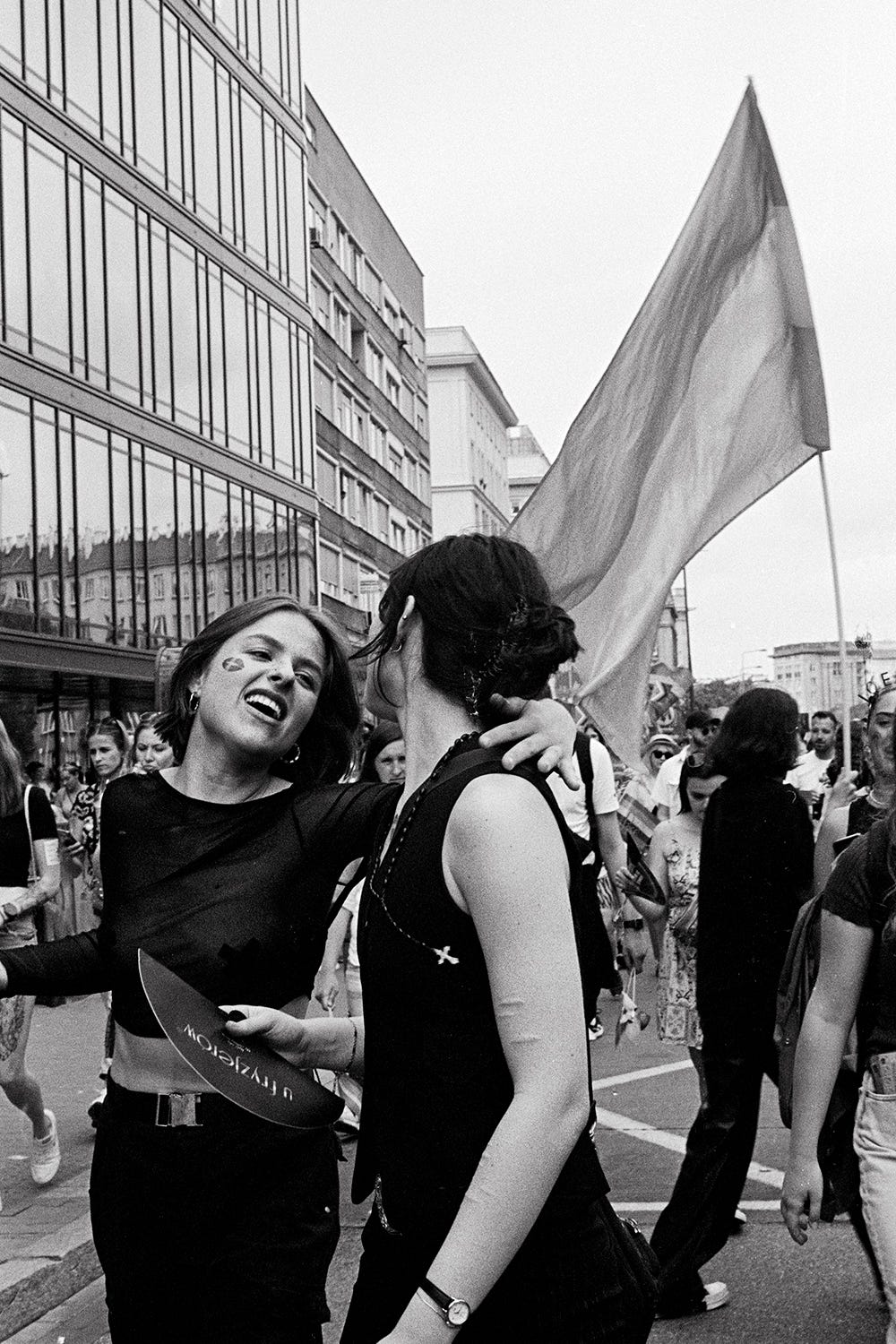
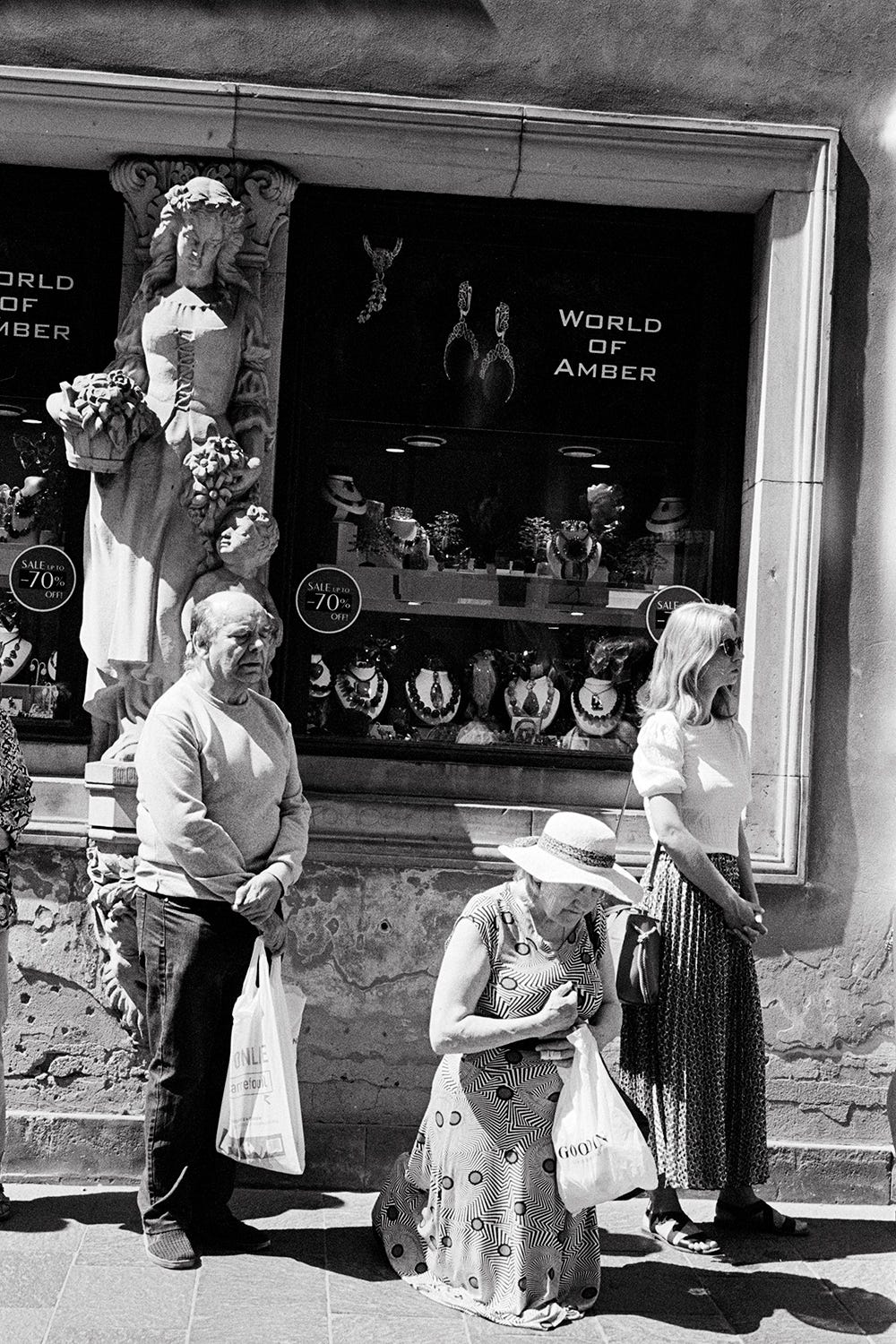
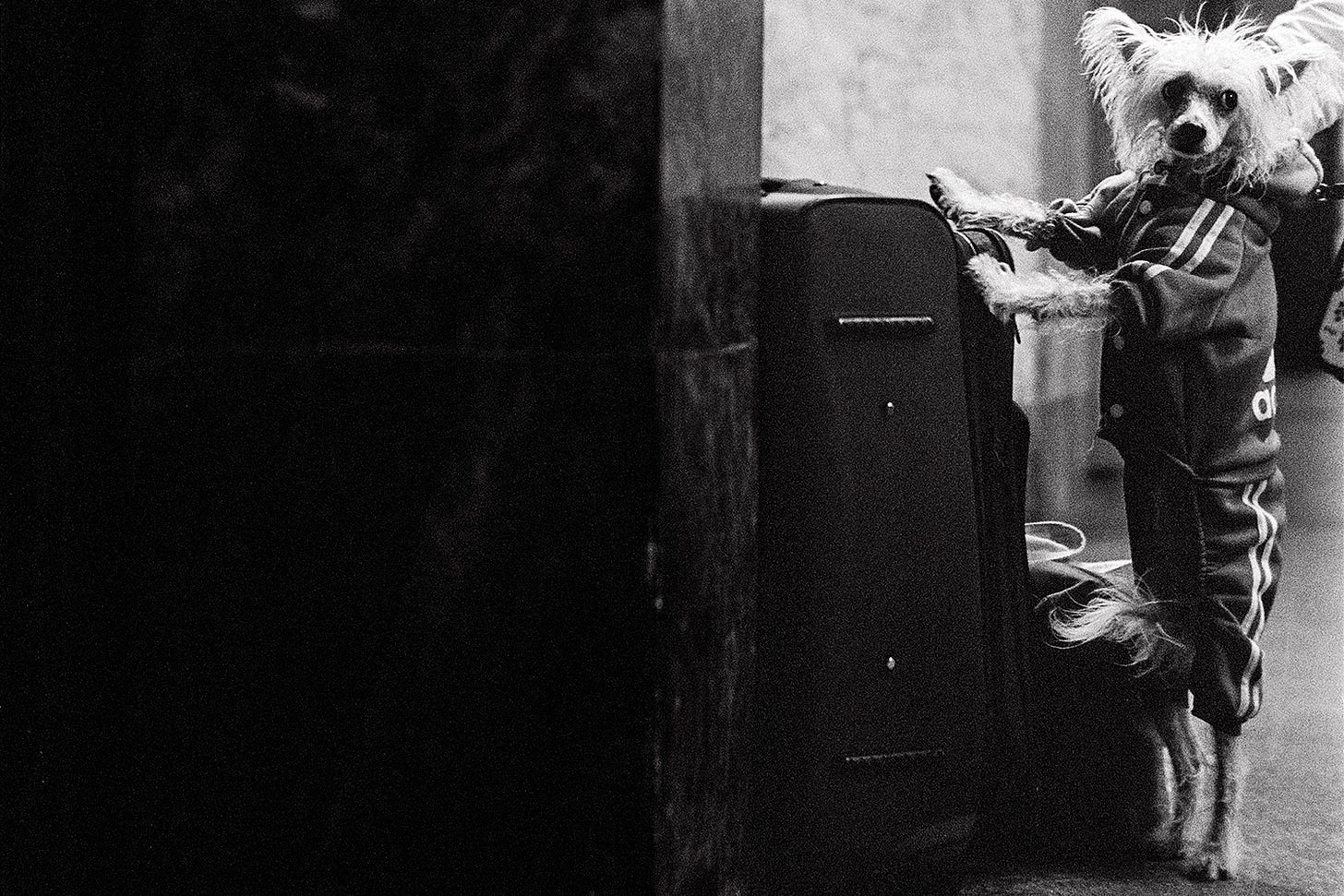


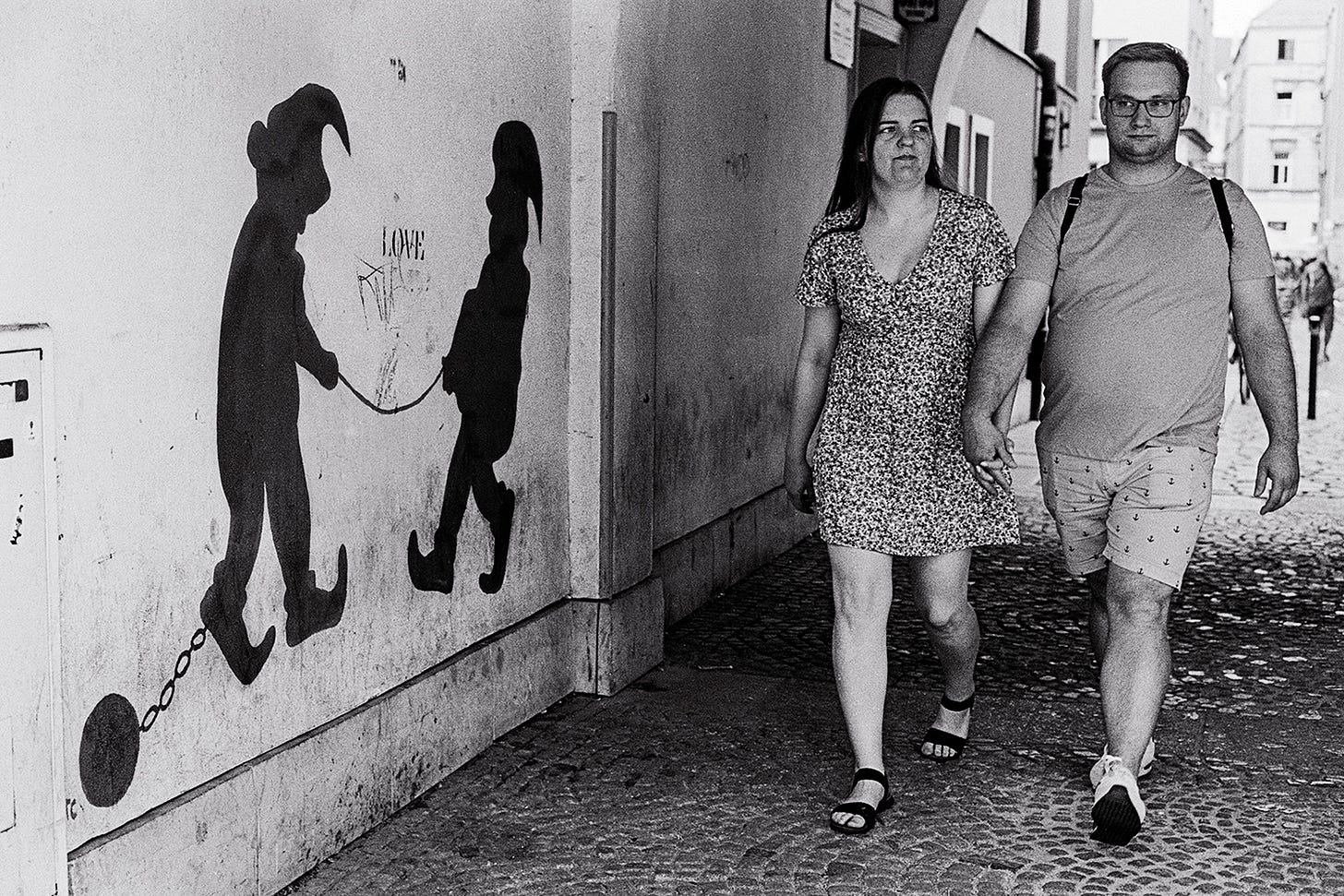
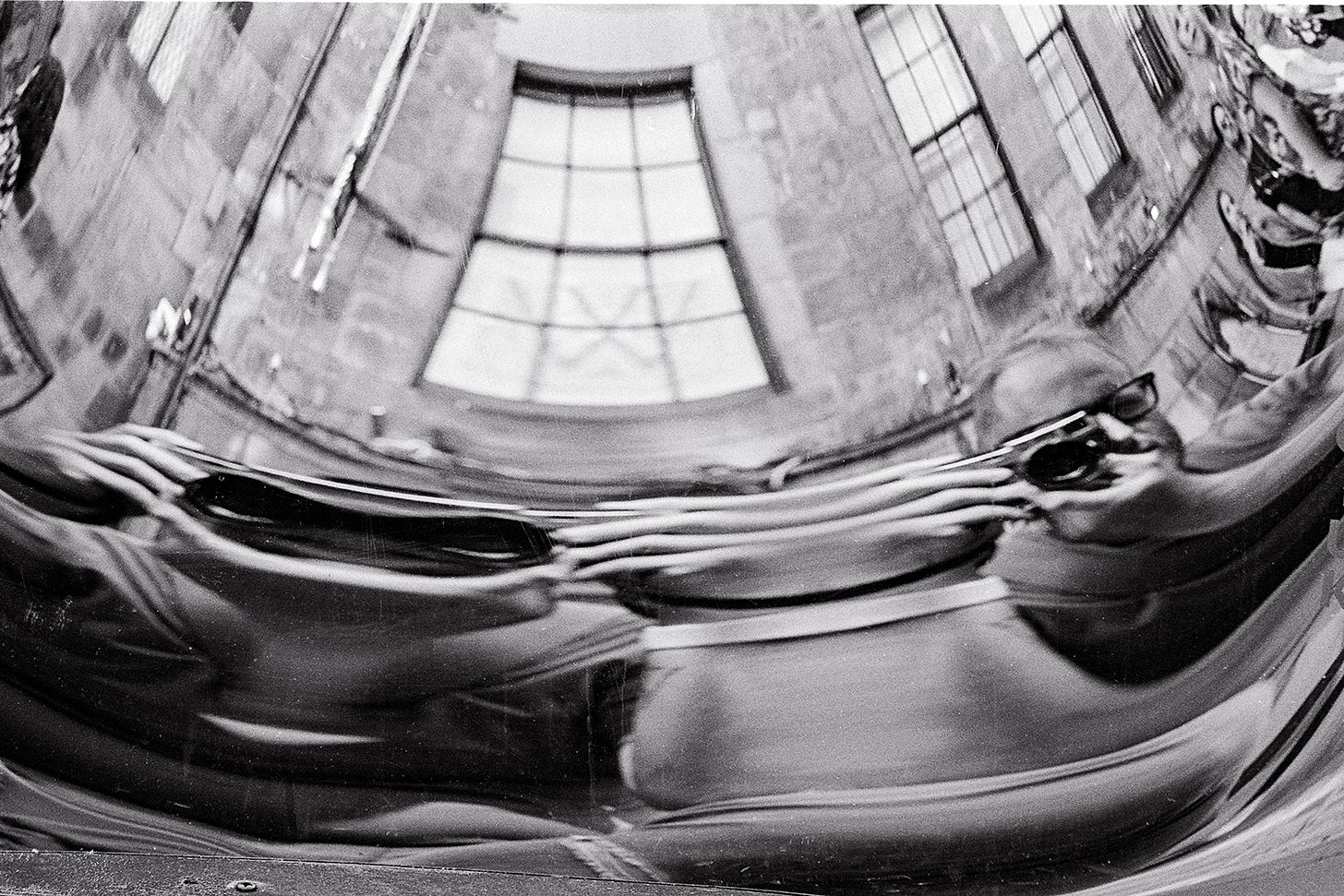
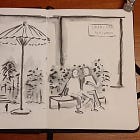



One thing I realise we didn't do in the interview above is add any of my music. Which probably shows just how completely I've moved over to photography.
Funnily enough, I met my old songwriting partner, Jules, last night for a drink. We both reminisced over this song. Possibly the best thing I / we ever did. If anyone's interested in a little retro-pop...
https://toomanyfireworks.bandcamp.com/track/without-you
What a tremendously open and honest account, thanks Neil. I’m sorry to hear about your struggles, but glad you’re in a better place now. My own experience with anxiety takes a slightly different form, mostly centred around irrational health worries, and while it’s certainly less pronounced than what you’ve had to endure, it bloody sucks, doesn’t it.